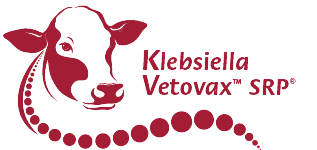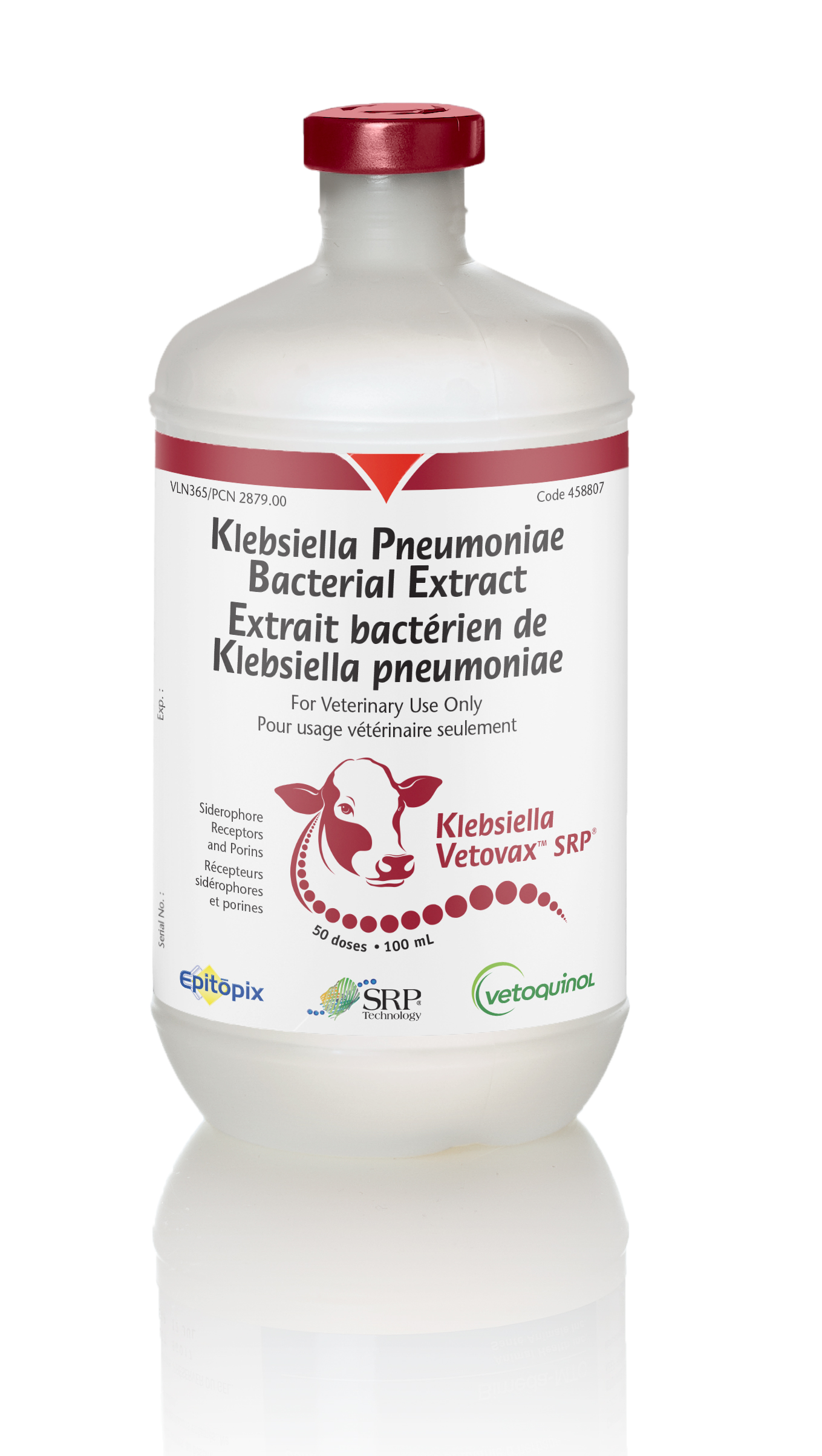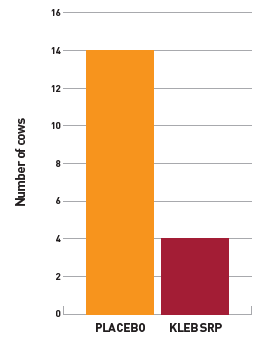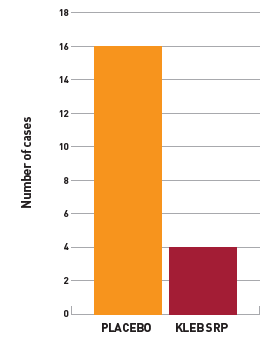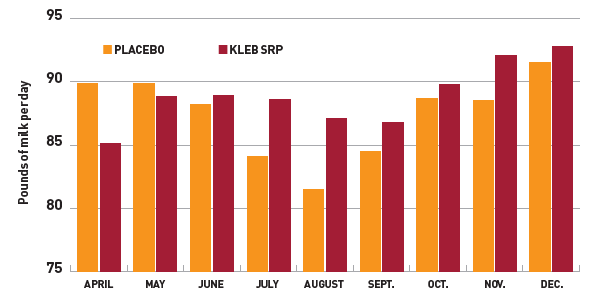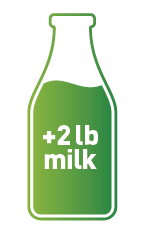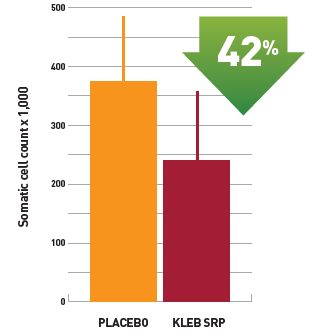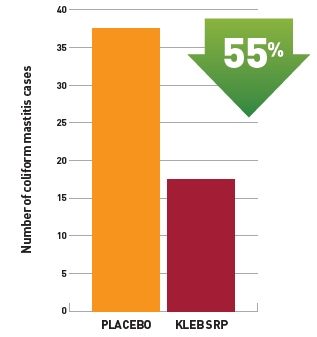Overview of the study
- 429 cows
- 378 milking
- Free stall barn houses all lactating cows with manger headlocks
- Currently bedded with manure solids (not heat treated)
- ~30% dry matter coming off the separator.
- Stalls are re-bedded 3x/week.
- J5 Vaccination
- 4x/lactation (-45, -28, 25, and 90 DIM)
It is important to note that the herd had an ongoing Klebsiella mastitis issue even with frequent J5 vaccination.
General conclusion of the study
conducted by Iowa State University
The prevalence and incidence of klebsiella mastitis was significantly reduced in Kleb-SRP vaccinated cows compared to placebo vaccinated controls. Prevalence, the portion of individuals that tested positive during the study, was reduced by 71% in vaccinates compared to controls. Milk production increased in Kleb-SRP vaccinated cows by 2.0 pounds per cow per day compared to placebo cows. In conclusion, vaccination with a Klebsiella pneumoniae vaccine based on the SRP® technology provided statistically significant protection from klebsiella mastitis.
Dairy farmers are justified in seeing mastitis as the utterly devastating disease that it is. According to Pamela Ruegg, “mastitis is the most common and costly health concern for dairy producers” 1 and “results in around 65-85% of the industry’s overall use of antibiotics.” 2 Mastitis is most frequently caused by bacteria. Cows become exposed through many sources (feces, bedding, milking equipment, water, other animals, etc.). Identifying the correct pathogen is crucial in determining the right course of action.
Not all sources of mastitis are alike...
Bacteria that cause mastitis come from two sources: contagious pathogens (such as Streptococcus agalactiae and Staphylococcus aureus) and environmental pathogens such as coliform bacteria and environmental Streptococci (other than Strep. agalactiae). Methods of control differ by pathogen, which is why it is important to identify the different bacteria causing a herd issue and address them accordingly. This document focuses on a specific and innovative new vaccine against coliform mastitis caused by Klebsiella pneumoniae bacteria.
Since "Gram-negative clinical mastitis (CM) is more severe than Gram-positive mastitis due to its effect on milk yield, discarded milk, treatment costs, death, and culling," 3 the lack of effective treatments historically made Klebsiella CM especially troublesome. Klebsiella Vetovax™ SRP® — a new vaccine using the innovative SRP® technology against mastitis caused by the coliform bacteria Klebsiella pneumoniae — is now available from Vetoquinol.
1 RUEGG, P.L. 2003. Investigation of mastitis problems on farms. Vet.Clin. North Am. Food Anim. Pract. 19:47–73.
2 OLIVEIRA, L., RUEGG, P.L. 2014. Treatments of clinical mastitis occurring in cows on 51 large dairy herds in Wisconsin. J. Dairy Sci., 97:9, p. 5426-5436.
3 HERTL, J. A., Y. H. SCHUKKEN, D. BAR, G. J. BENNET, R. N. GONZALEZ, B. J. RAUCH, F. L. WELCOME, L. W. TAUER et Y. T. GRÖHN. 2011. The effect of recurrent episodes of clinical mastitis caused by Gram-positive and Gram-negative bacteria and other organisms on mortality and culling in Holstein dairy cows. J. Dairy Sci. 94:4863–4877.
REDUCED PREVALENCE OF KLEBSIELLA MASTITIS
Prevalence of klebsiella mastitis in cows vaccinated with Klebsiella SRP vaccine versus placebo
71%
Prevented Fraction 0.7143; 95% CI: 0.1453 to 0.9045. P=0.0171
Source: Iowa State University study
REDUCED INCIDENCE OF KLEBSIELLA MASTITIS
Incidence of klebsiella mastitis in cows vaccinated with Klebsiella SRP vaccine versus placebo
76%
Prevented Fraction 0.7594; 95% CI: 0.2804 to 0.9195. P=0.0056
Source: Iowa State University study
AVERAGE DAILY MILK PRODUCTION PER COW
from cows vaccinated with Klebsiella SRP vaccine versus placebo
Overall 2.002 pound of milk advantage in Klebsiella SRP Vaccinates per cow per day. P≤0.001
Source: Iowa State University study
INCREASED MILK PRODUCTION
PER COW, PER DAY
Effect of Klebsiella SRP vaccination
on somatic cell count (SCC)
SCC reduction on average
Error bars show 95% CI. Controlling for other variables, vaccination with Klebsiella SRP reduces SCC on average 42%. P≤0.001
Source: Iowa State University study
Cumulative cases of coliform mastitis from cows vaccinated with
Klebsiella SRP vaccine versus placebo
Reduced cases of coliform mastitis

